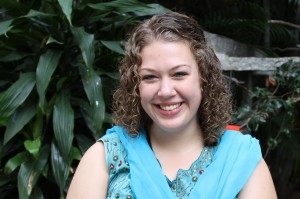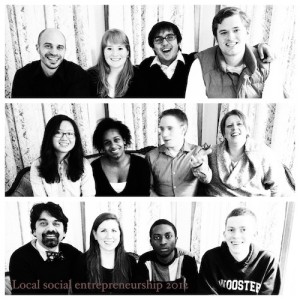Do you want a transformative learning experience like Samantha and Usman?
Why: You want a change from the traditional classroom. You are interested in addressing social challenges in our local community. You want to learn how social enterprises solve real-world problems and learn collaboratively with change makers. If any of this is true for you, please read more and take action.
What: This Spring, the College’s Social Entrepreneurship Program is offering IDPT 40507 Local Social Entrepreneurship Seminar. The problems-based experiential-learning seminar will meet twice a week TTH in the mornings. Students earn 1 academic credit including EL credits towards the Entrepreneurship Pathway.
How: Teams of three will be paired with a local nonprofit organization. You will work closely with the organizations all semester to help them solve a defined problem they are currently facing. Weekly seminar sessions will be led by Dr. Amyaz Moledina (Economics), Dr Matt Mariola (Env. Studies), and Dr Melanie Long (Economics). An expected outcome from the seminar is a business & marketing plan and a final presentation to the Board of the organization. No prior experience is necessary. We do require your enthusiasm, passion for the problem, and a strong work-ethic. Space in the seminar is limited. A short application is required. The deadline to submit your application is Monday October 23 at 11pm. The application requires you to write a cover letter, and an unofficial transcript. Optionally you may submit a resume. Please click on this link to start the application.
More info: Come to our information session on Thursday October 12 at 12:00pm (noon) in the Morgan Entrepreneurship Collaboration Space. Please contact Professor Moledina if you have questions about the next SE opportunity.



